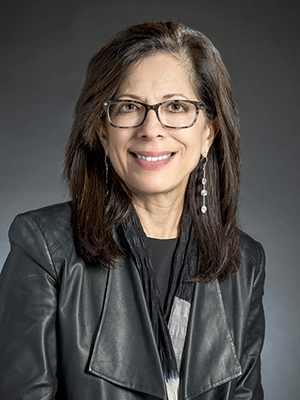
Elizabeth M. Jaffee, MD
OVER THE LAST DECADE, a wave of randomized trials has led to approvals of immune checkpoint inhibitors (ICIs) as neoadjuvant or adjuvant therapies for resectable, early-stage solid tumors. Neoadjuvant therapies are given before the main treatment, usually surgery, while adjuvant therapies are given after the main treatment.
The emergence of ICIs, such as Tecentriq (atezolizumab) and Keytruda (pembrolizumab), has transformed the landscape of perioperative therapy, treatment around the time of surgery, for many early-stage cancers. Although ongoing clinical trials and recent approvals for ICIs have signaled improved treatment outcomes for patients with cancer, many outstanding questions remain, including the appropriate sequencing, dosing and duration of therapy and the best approach to selecting neoadjuvant or adjuvant single and combination immunotherapies. As ICIs become more widely used before and after cancer surgery, the Food and Drug Administration (FDA) is concerned that some patients may receive more treatment than is required to fight their cancer, potentially leading to unnecessary toxicity.
The variability in clinical trial designs has created challenges, particularly in interpreting efficacy data, which has implications for regulatory decision-making and clinical practice. Furthermore, it has become difficult to determine if neoadjuvant or adjuvant therapy is superior when compared with one another and whether administering a systemic therapy both before and after surgery improves patient outcomes. At a May 9 workshop held jointly by the FDA and the American Association for Cancer Research (AACR) to examine these questions, Harpreet Singh, MD, who served as a co-chair of the workshop in her role as an FDA division director, said, “The lack of coordination, redundancy in patient resources and suboptimal trial designs have left patients and providers with more questions than answers.” Singh recently left the FDA to become chief medical officer at Precision for Medicine, a clinical research organization. As recent trial results in the perioperative space for breast, lung and other cancers have become available, the lingering question that underpinned the theme of the workshop was asked by Richard Pazdur, MD, director of the FDA’s Oncology Center of Excellence, during its early planning stages: “How much [treatment] is enough?”
During the meeting, stakeholders, including representatives from the FDA, the European Medicines Agency, the pharmaceutical industry, academia and patient advocacy organizations, suggested patient-centered solutions to clarify the impact of each treatment phase. Participants urged the community to address many of the outstanding questions, such as whether clinical trials should require more than two treatment arms. In lung cancer, for example, three academic studies are underway to clarify the roles of each component of treatment pre- and post-surgery and to determine which patients benefit from additional immunotherapy after surgery. Kelley Kidwell, PhD, associate professor at the University of Michigan School of Public Health in Ann Arbor, spoke at the workshop about the feasibility of sequential multiple assignment randomized trials (SMARTs), which are adaptive studies that can proactively compare treatment arms and tailor regimens in real time. Valsamo Anagnostou, MD, PhD, associate professor of oncology at the Johns Hopkins Kimmel Cancer Center in Baltimore, explained how prognostic biomarkers may determine which treatment options can minimize toxicity and maximize benefit.
Singh concluded the workshop with a call to action for all stakeholders to collaboratively develop more thoughtful and rational clinical trial designs to answer the key question: How much treatment is enough for patients with early-stage resectable cancers? While there seem to be more questions than answers right now, Pazdur noted during the AACR Annual Meeting 2024 that “unless we address these questions, we’re going to be prolonging drug development—and exposing generations and thousands and thousands of patients to unnecessary therapy.”
Please visit the AACR website to learn more about the FDA-AACR workshop.
Cancer Today magazine is free to cancer patients, survivors and caregivers who live in the U.S. Subscribe here to receive four issues per year.





